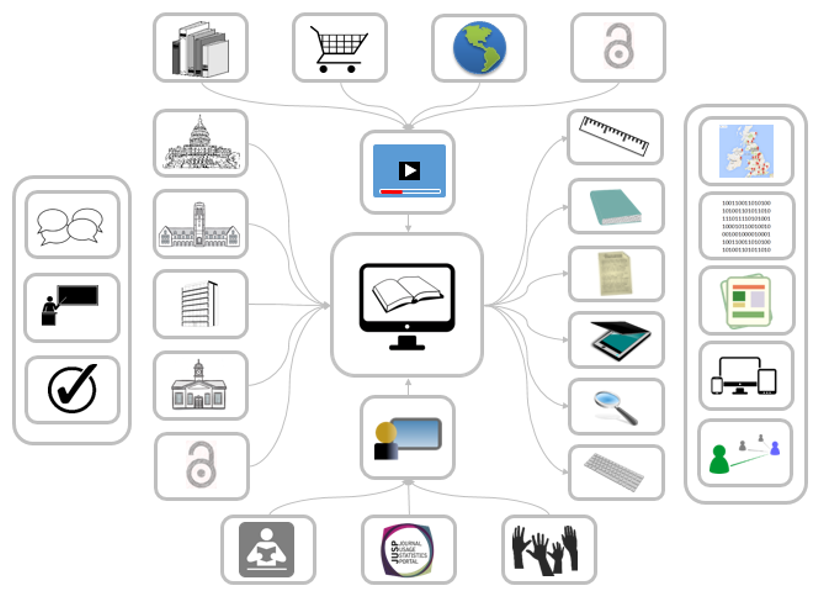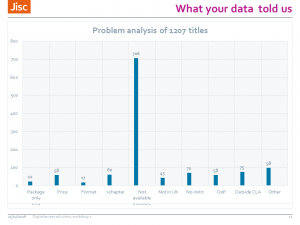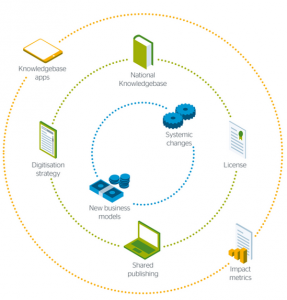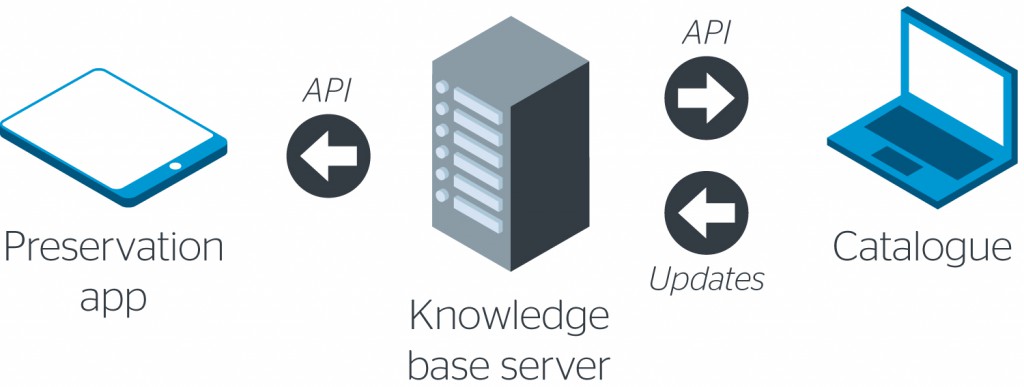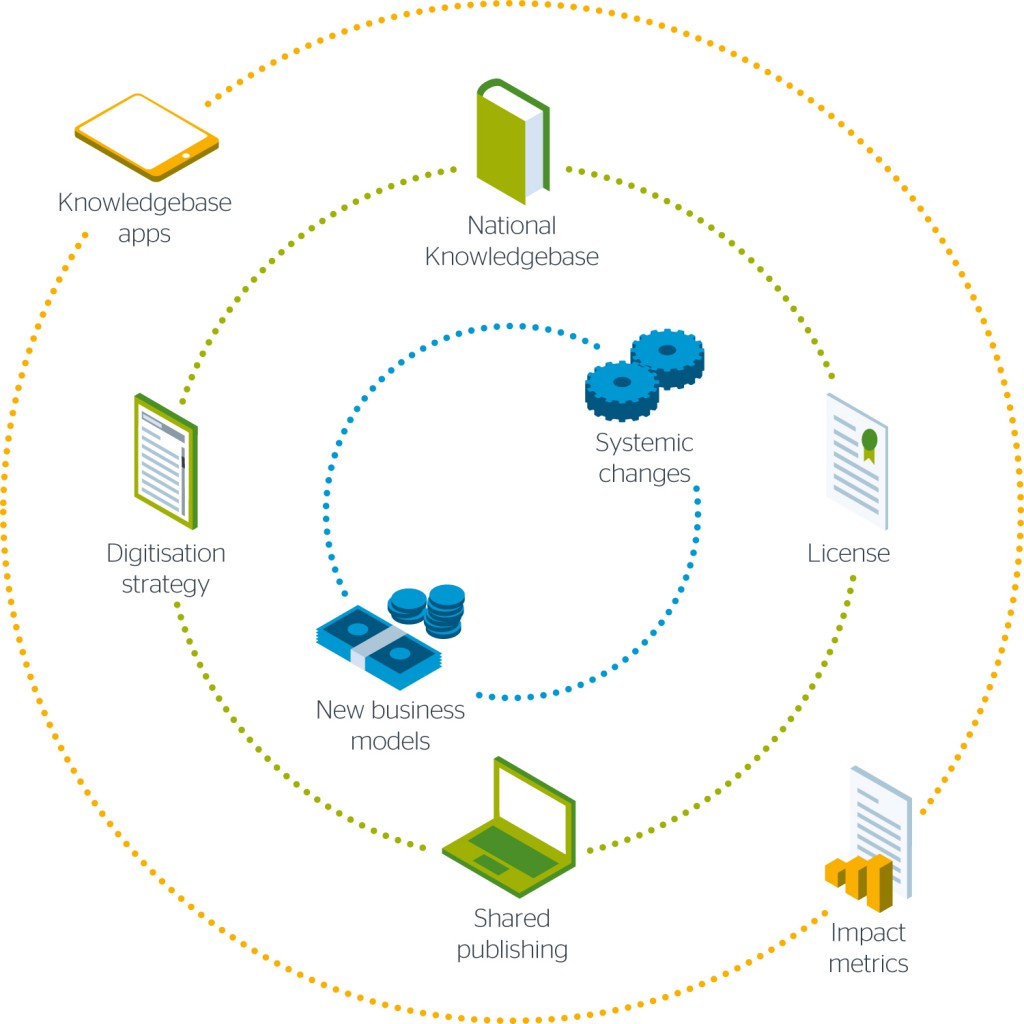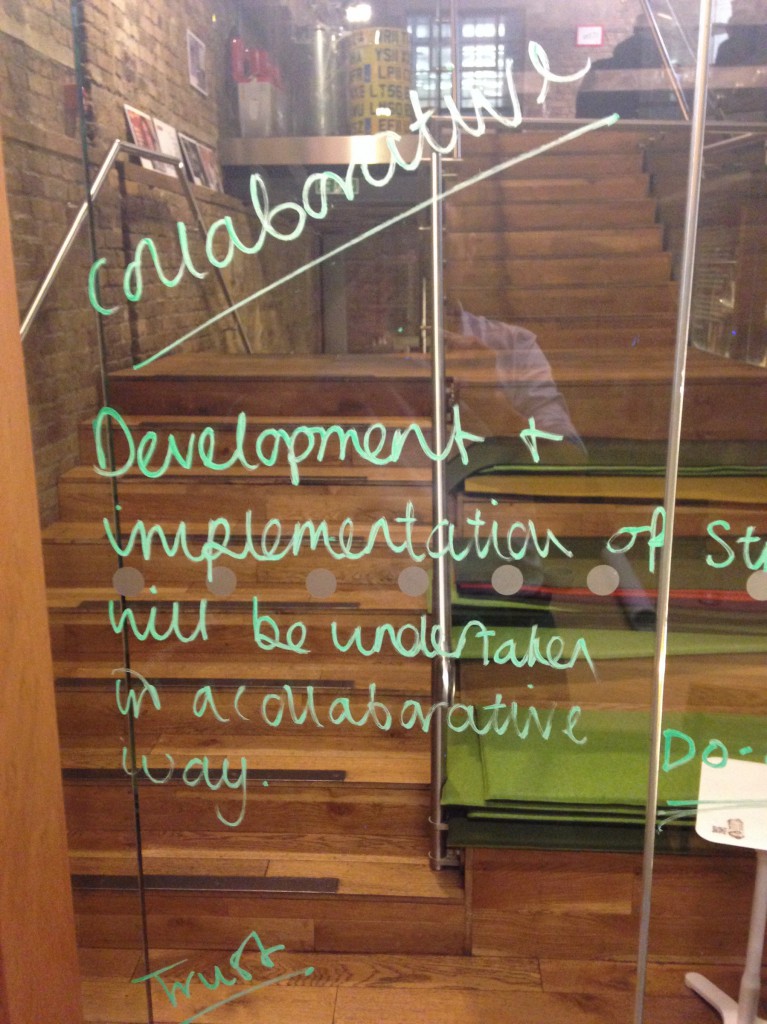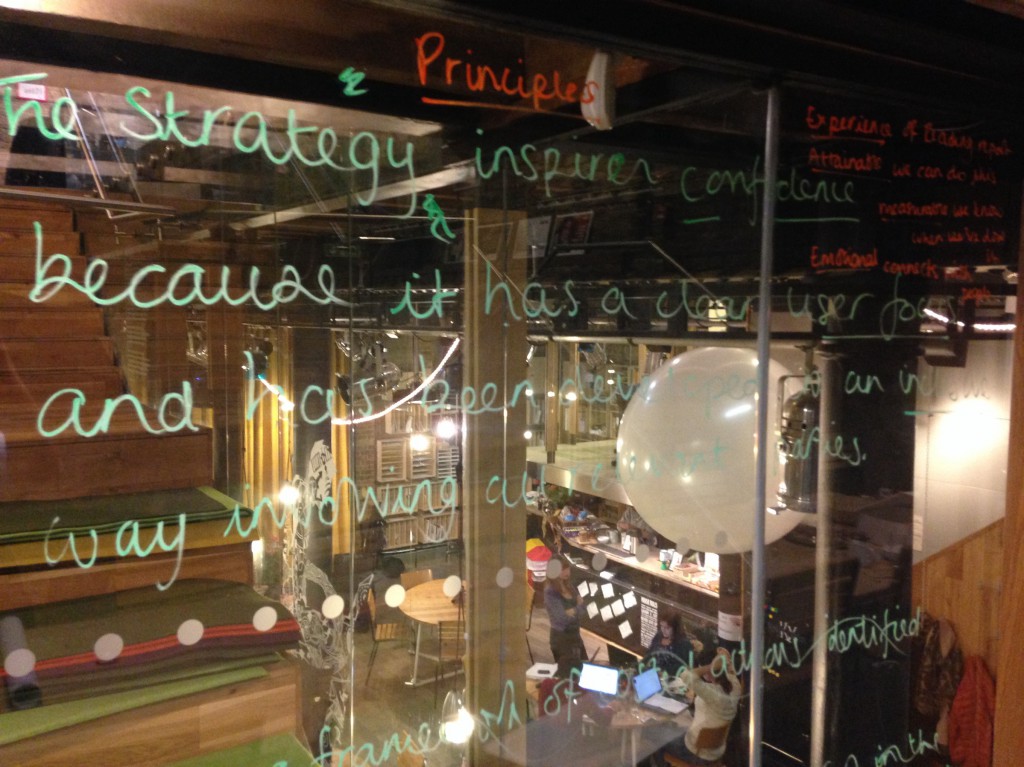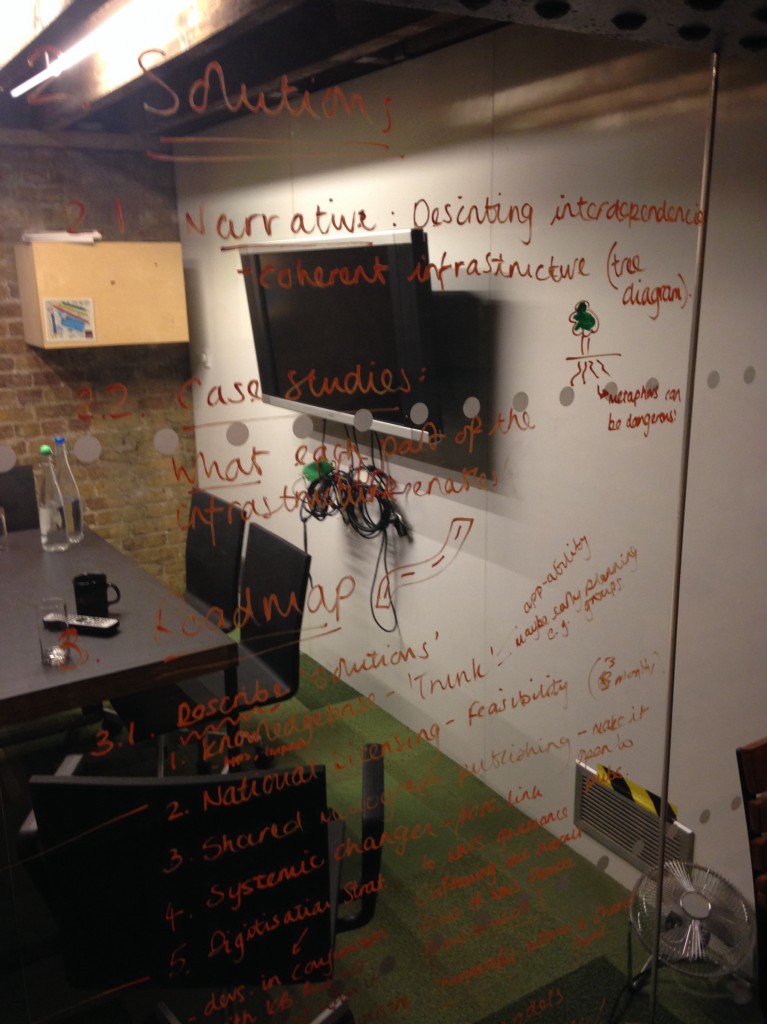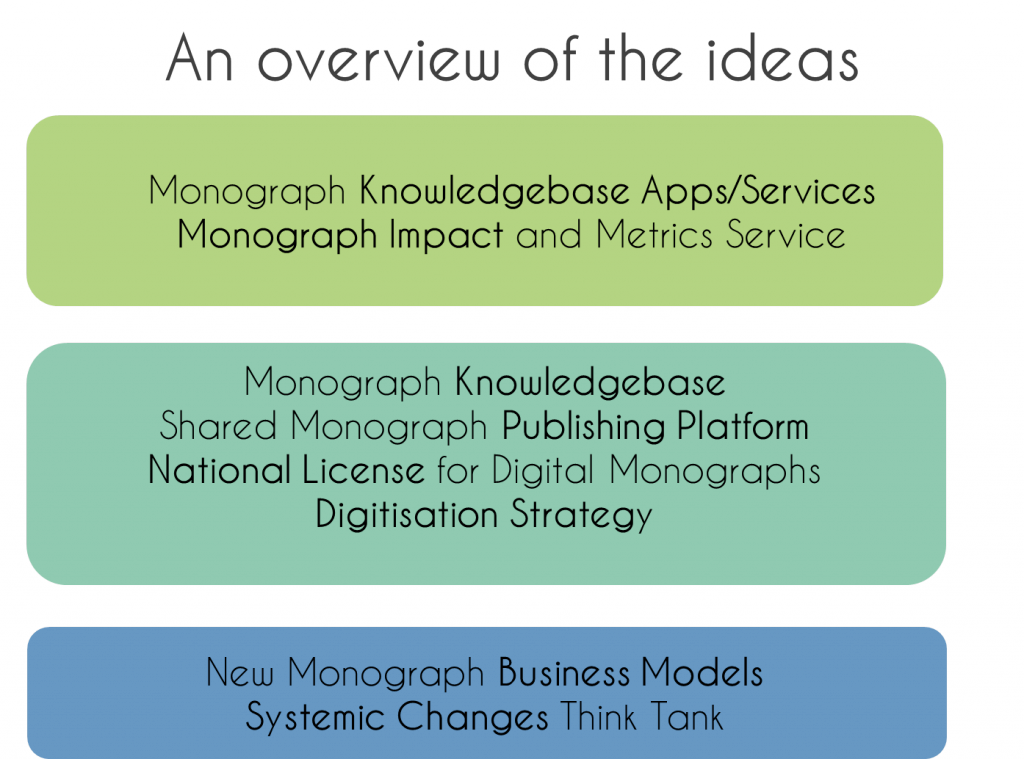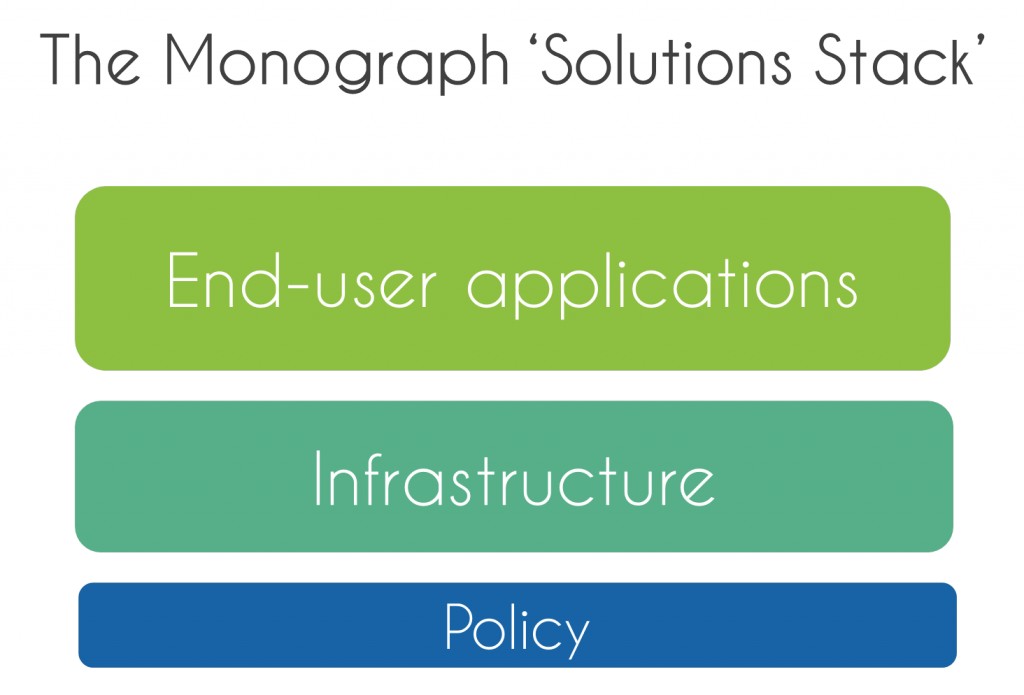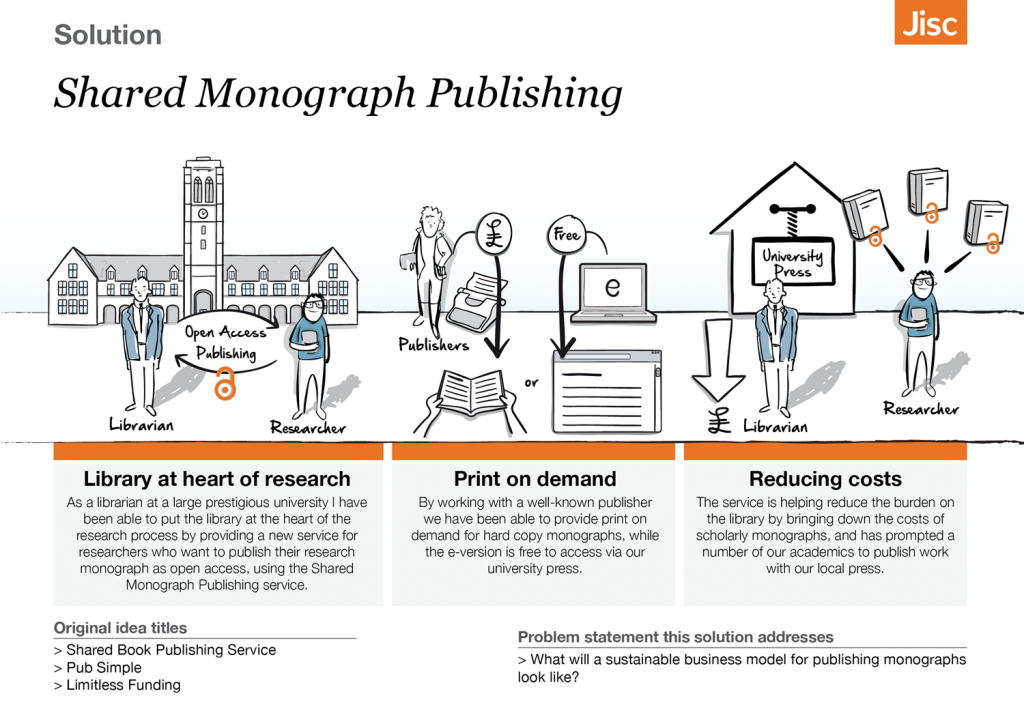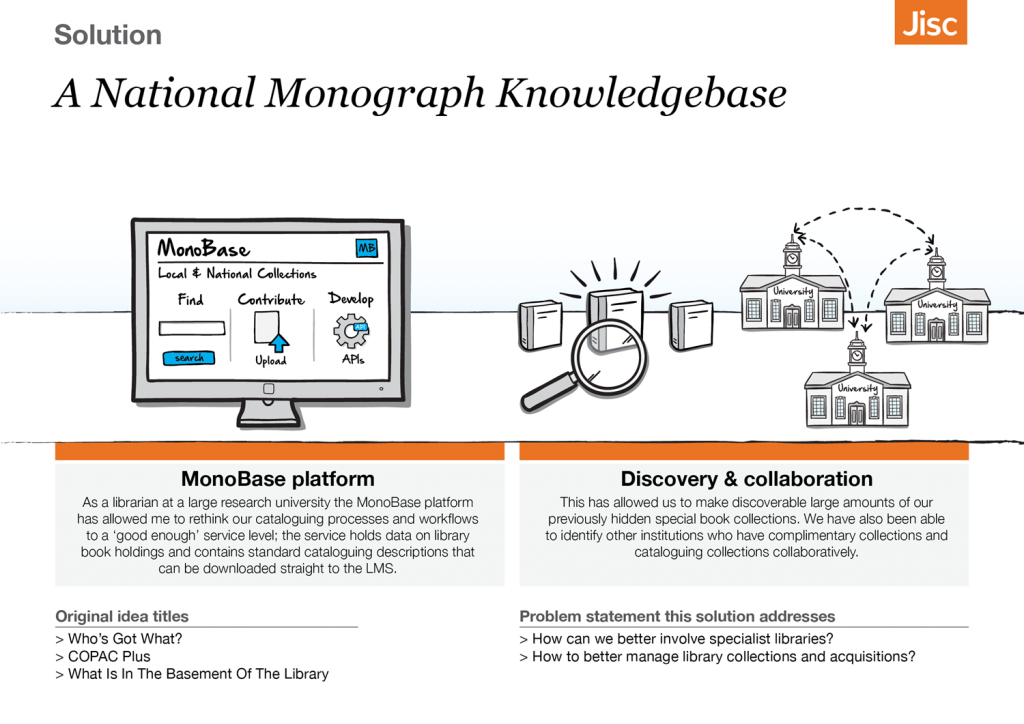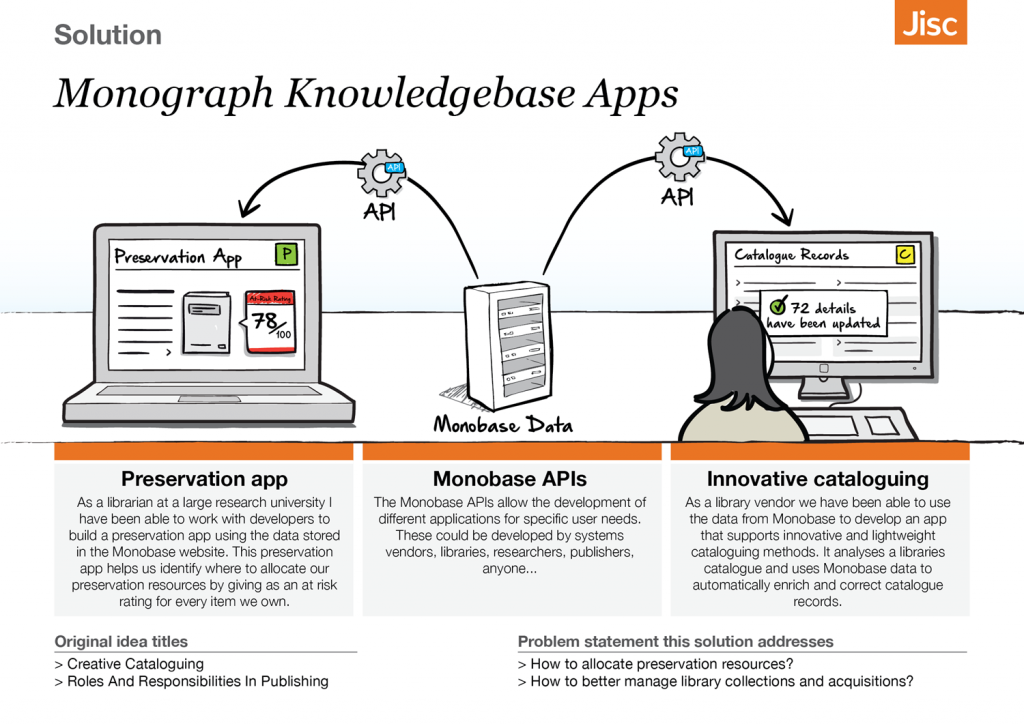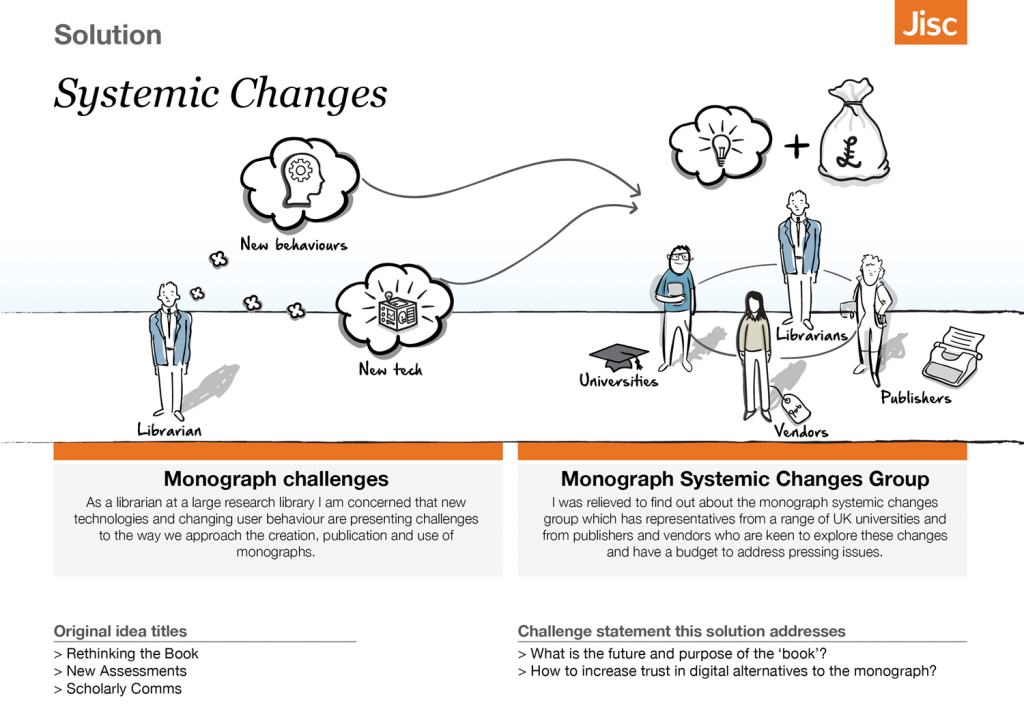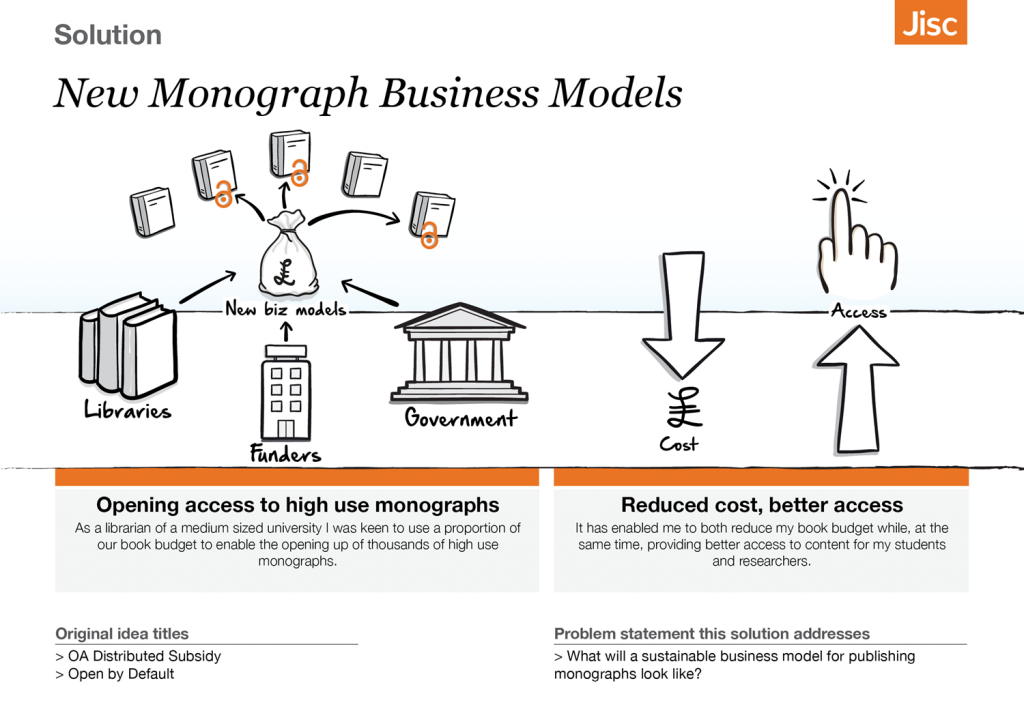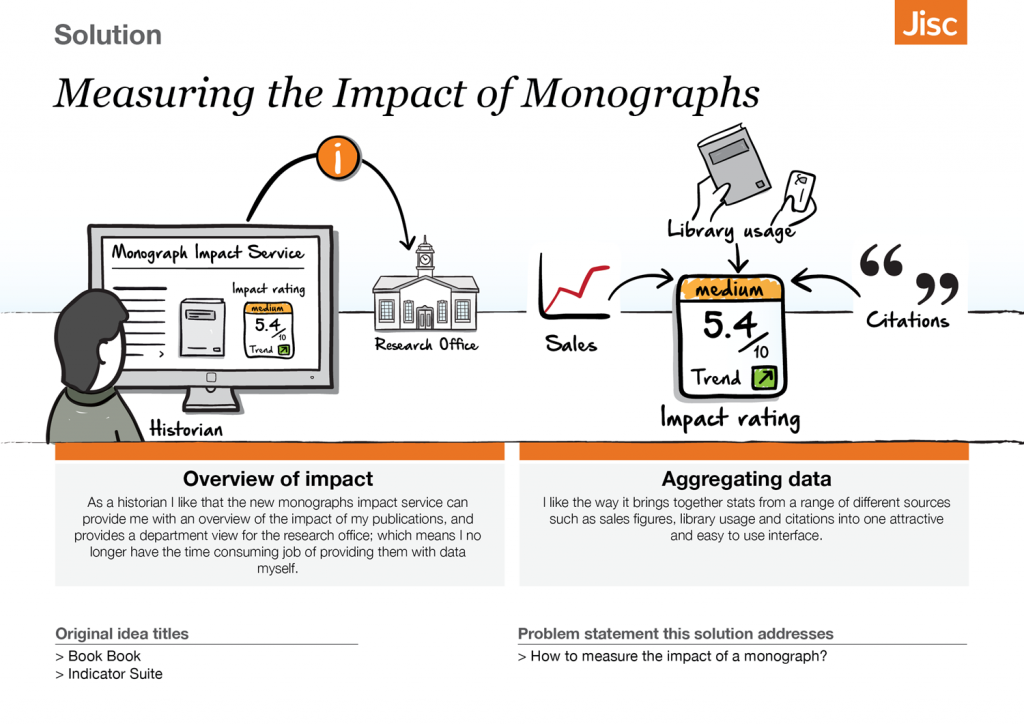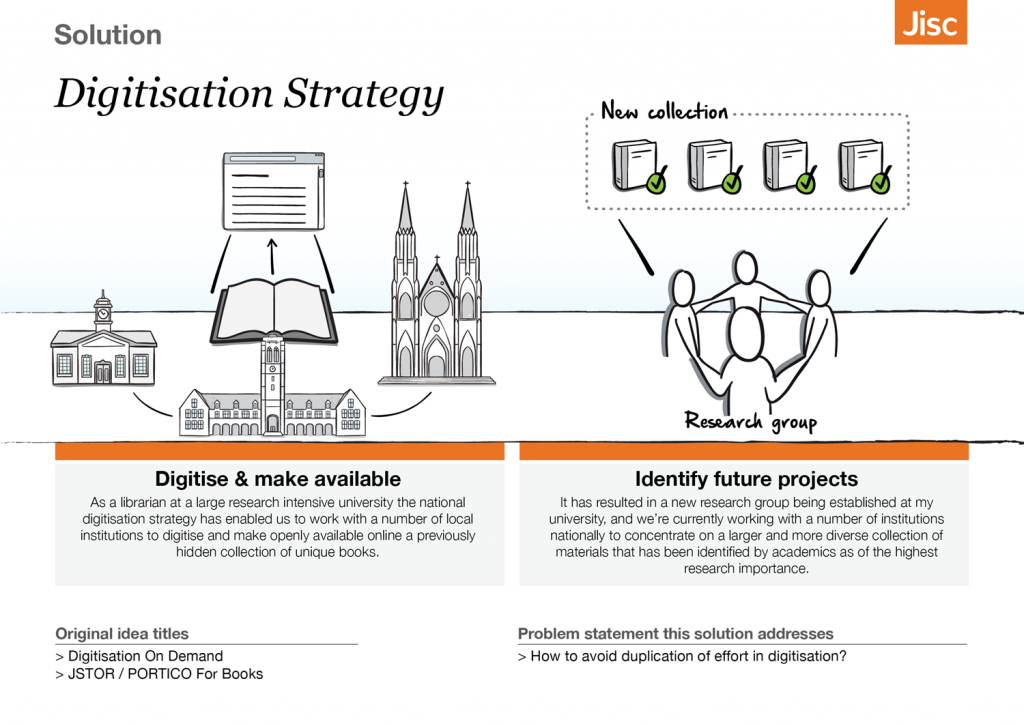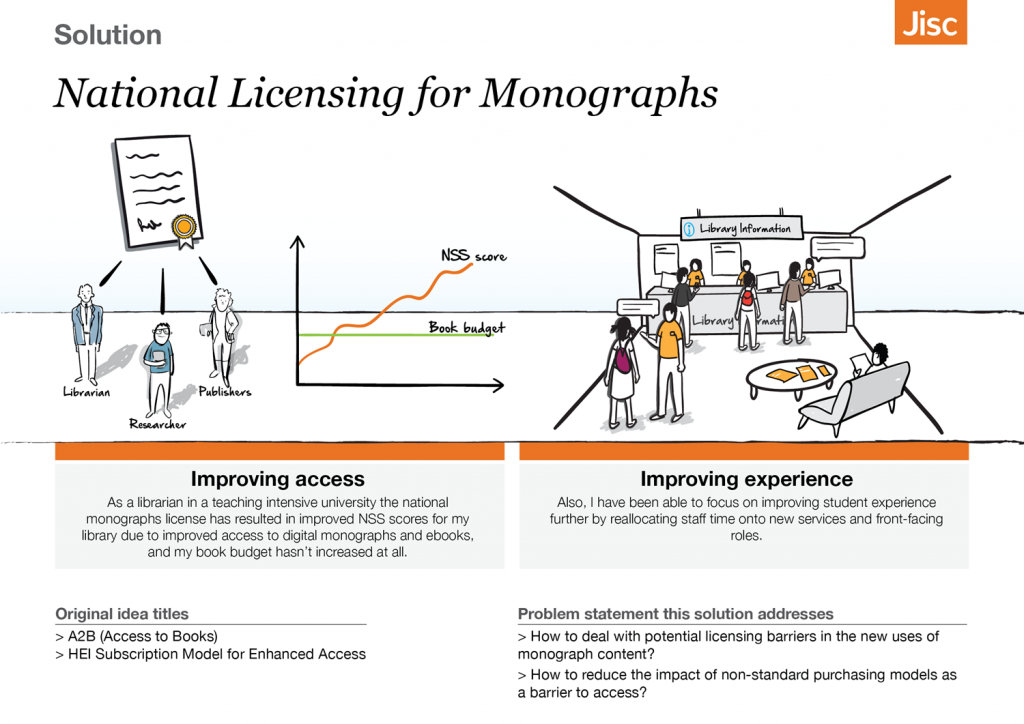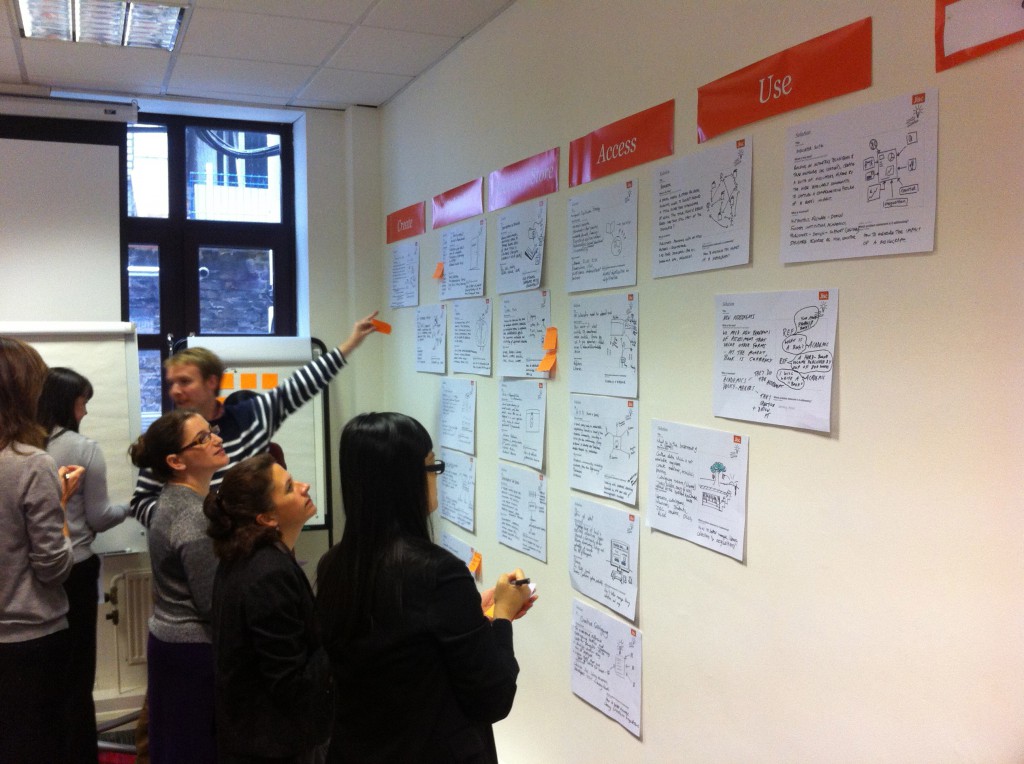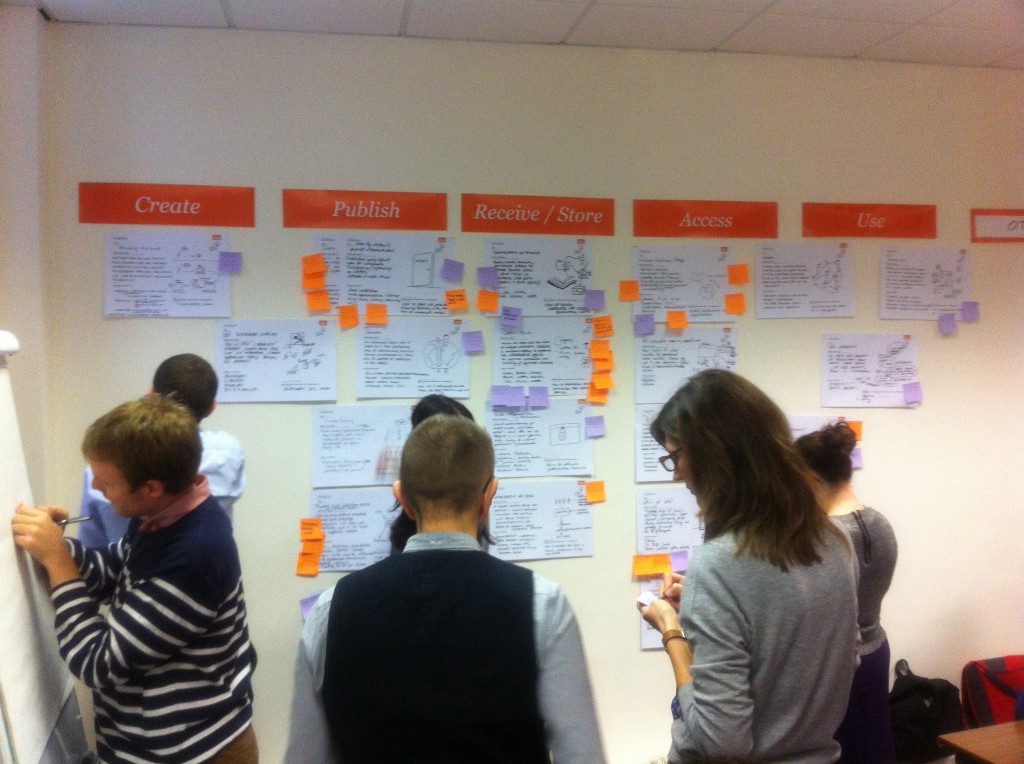The NMS project team recently got together to ‘crunch’ some of the outputs from our recent workshop exploring solutions.
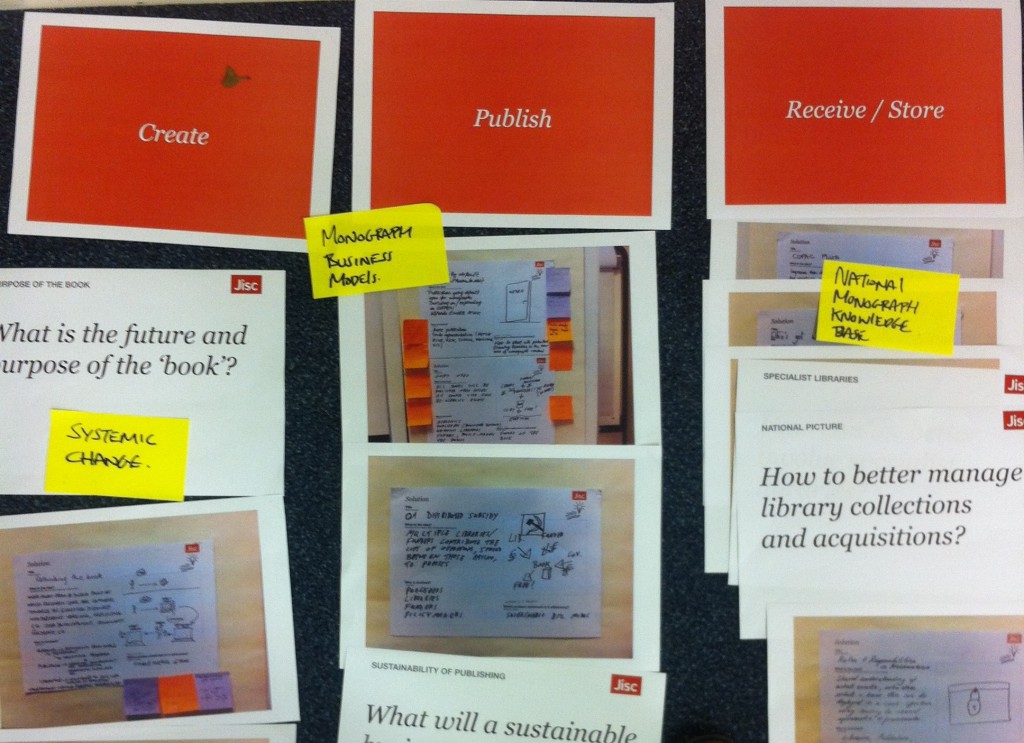
We got together to plan the next workshop where we want to build on the outputs of the last two workshops, developing the outline solutions further, and making sure we answer the problem statements that emerged from out first workshop.
The 7 ideas….
We grouped the solutions into 7 rough themes/ideas and also drafted a short scenario to help flesh out the idea further (I have included an example problem statement this would address – in most cases the ideas address multiple problem statements):
National monograph knowledgebase [How to better manage library collections and acquisitions]
As a librarian at a large research university the MonoBase platform has allowed me to rethink our cataloguing processes and workflows to a ‘good enough’ service level; the service holds data on library book holdings and contains standard cataloguing descriptions that can be downloaded straight to the LMS. This has allowed us to make discoverable large amounts of our previously hidden special book collections. We have also been able to identify other institutions who have complimentary collections and cataloguing collections collaboratively.
Knowledgebase Apps [How to allocate preservation resources]
As a librarian at a large research university I have been able to work with developers to build a preservation app using the data stored in the Monobase website. This preservation app helps us identify where to allocate our preservation resources by giving as an at risk rating for every item we own.
As a library vendor we have been able to use the data from Monobase to develop an app that supports innovative and lightweight cataloguing methods. It analyses a libraries catalogue and uses Monobase data to automatically enrich and correct catalogue records.
Digitisation Strategy How to avoid duplication of effort in digitisation]
As a librarian at a large research intensive university the national digitisation strategy has enabled us to work with a number of local institutions to digitise and make openly available online a previously hidden collection of unique books. It has resulted in a new research group being established at my university, and we’re currently working with a number of institutions nationally to concentrate on a larger and more diverse collection of materials that has been identified by academics as of the highest research importance.
Measuring monograph impact [How to measure the impact of the monograph]
As a historian I like that the new monographs impact service can provide me with an overview of the impact of my publications, and provides a department view for the research office; which means I no longer have the time consuming job of providing them with data myself. I like the way it brings together stats from a range of different sources such as sales figures, library usage and citations into one attractive and easy to use interface.
Shared monograph publishing [What will a sustainable business model for publishing monographs look like]
As a librarian at a large prestigious university I have been able to put the library at the heart of the research process by providing a new service for researchers who want to publish their research monograph as open access, using the shared monograph publishing service. By working with a well-known publisher we have been able to provide print on demand for hard copy monographs, while the e-version is free to access via our university press. The service is helping reduce the burden on the library by bringing down the costs of scholarly monographs, and has prompted a number of our academics to publish work with our local press.
National Licensing for Monographs [How to deal with potential licensing barriers in the new uses of monograph content]
As a librarian in a teaching intensive university the national monographs license has resulted in improved NSS scores for my library due to improved access to digital monographs and ebooks, and my book budget hasn’t increased at all. Also, I have been able to focus on improving student experience further by reallocating staff time onto new services and front-facing roles.
Systemic Changes [What is the future and purpose of the book?]
As a librarian at a large research library I am concerned that new technologies and changing user behaviour are presenting challenges to the way we approach the creation, publication and use of monographs. I was relieved to find out about the monograph systemic changes group which has representatives from a range of UK universities and from publishers and vendors who are keen to explore these changes and have a budget to address pressing issues.
Some new possibilities…
Already these ideas begin to offer up some very interesting possibilities.
A focus on data, which would provide a foundation for various services to be built and existing services and systems enhanced. New cataloguing approaches might be developed (crowdsourcing catalogue data?) and services could be plugged in and turned off as user requirements evolve and technologies change.
What’s also interesting is that some of these ideas might also help provide a basis for some of the more systemic changes that had been described in the workshops too, such as the future and purpose of the book form, for example.
Ideas such as shared or collaborative publishing and a national, collective approach to digital monograph licensing, seem to lay foundations for more radical action around the monograph and its digital future.
The final workshop
So, from the original 20 ideas we managed to get these 7 idea areas – which will be the starting point for the next workshop.
The aim of this final workshop is to build upon the solutions work in the last meeting and begin to really flesh out some of these ideas.
To begin thinking about:
- What the top features of the idea might be?
- Impact of the idea on stakeholders (like publishers, librarians, students and academics), both positive and negative?
- What success might look like?
- Which aspects of the idea you’d want to test and pilot?
The workshop will provide the project with both ideas that could be piloted and tested in future phases, as well as provide the requirements for potential solutions, and give us the basis for our final report and a vision for what a National Monographs Strategy could help libraries, publishers and academics achieve.
We’ll be posting the outputs from the workshop shortly after its finished (after Tuesday 26th November) and would love to get your feedback and thoughts on what ideas and potential solutions might be appropriate for the problems presented by the monograph.


